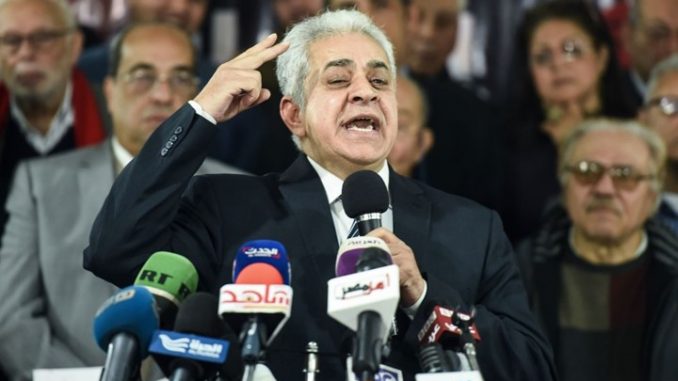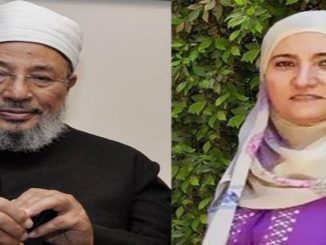
Egyptian opposition figures at home have announced their complete rejection of the new loan that Cairo intends to obtain from the International Monetary Fund (IMF) to face the economic repercussions resulting from the outbreak of the novel COVID-19 in the country, calling for the necessity to face it (the loan) as “a new major calamity for Egypt, and another threat to national independence”.
The prominent opposition figures inside Egypt confirmed, that “the true national forces reject the economic policies of the Sisi regime, even if those powers do not announce this position openly, for the circumstances that everyone knows”, warning of the danger of “surrender to the IMF conditions, and dumping Egypt with foreign debt”, according to Arabi 21.
A source familiar with the Civil Democratic Movement revealed that there are different views in the movement’s positions between opponents and supporters of the new loan, but most political parties and figures related to the movement tend to reject the IMF loan, but they refrain from announcing their position for fear that they may be subjected to further restrictions or abuse by the security services.
The source explained that among the most important opponents of the new IMF loan is former presidential candidate Hamdeen Sabahi, as he believes such loans squander the state’s resources, while only the Egyptian people, especially the poor, are the ones that pay them off, as Sabahi said in previous statements.
The source, who declined identify himself, said that “the movement may issue a statement during the next week, addressing the new IMF loan, as well as some other issues,” adding: “We realize that IMF loans are a thorny and sensitive issue to the regime, and therefore we treat it with great caution, regardless of whether we have national motives and positions that reject this matter, which we believe will spoil economy rather than reforming it. “
Late April, the Egyptian National Action Group (ENAG) accused the International Monetary Fund (IMF) of implicating Egypt in more debts.
The Egyptian National Action Group, including opposition figures from across the Egyptian political spectrum both at home and abroad, confirmed that the IMF loans have not achieved any positive returns to the Egyptian citizen; on the contrary, the poverty rate increased to record rates, noting that it is time to watch how these funds are used.
ENAG then expressed its concern over what it described as “the politically supportive tone held in the statement by IMF Managing Director Kristalina Georgieva issued on April 26th, following the regime’s request for emergency funds.” in light of the outbreak of the novel COVID-19 in Egypt.
ENAG said in a statement on 29 April 2020, that “Although many independent observers criticized the catastrophic management of the COVID-19 crisis by the Egyptian regime, both in terms of actions and transparency, the IMF statement praises Sisi and the junta who ‘have responded quickly and decisively with measures to limit its spread and provide support to affected people and businesses’.”
On April 26, the IMF Managing Director Kristalina Georgieva, claimed that Sisi and his government had taken urgent and decisive action to confront the Covid-19 pandemic, saying that the Egyptian regime had taken measures to limit the spread of Corona, and had provided support to affected individuals and businesses; and that the Central Bank of Egypt implemented timely measures to support the domestic economy.
The National Working Group pointed out that Kristalina Georgieva’s statement said that the Central Bank of Egypt had also implemented measures in a timely manner to support the domestic economy, a few days after the chairman of Daily News Egypt, Mostafa Saqr, was arrested after an article had raised allegations of currency manipulation by the Central Bank of Egypt.
On April 14, the Supreme State Security Prosecution decided to imprison Mostafa Saqr, the owner of the “Business News” company that issues the “Al Borsa” and “Daily News Egypt” newspapers, for 15 days pending investigations, on charges of joining an unidentified group.
The Egyptian National Action Group’s statement said ENAG “regrets that the IMF shows such a clear lack of independent information about the reality of the economic, social and sanitary situation of Egypt,” adding, “We call for the IMF to listen to other voices than the regime’s, to watch much more closely how their funds have been used so far and to realize that their money has mostly funded corruption and the military economy but certainly not the real economy and the private sector.”
ENAG also said that “despite the billions injected by the IMF, the EU or the Gulf countries, Egyptians are poorer by almost 20% and 6 Egyptians out of 10 are considered as either poor or vulnerable by the World Bank itself. Due to the IMF reforms, the most destitute can no longer rely on State subsidies for their basic needs.”
The Egyptian opposition group wondered, how the IMF will make sure that these emergency loans will truly serve the Egyptian population, and how it will make sure that none of this money will go into Sisi or some generals’ bank accounts.
ENAG also indicated that “the 2016-2019 IMF program in Egypt aimed at “restoring macroeconomic stability and return Egypt to strong and sustainable growth.” including “bringing down the budget deficit and government debt”. However, in 2013, Egypt’s external debt was USD 43 Billion. It has now reached more than USD 110 Billion.”
This is not the first time that Egypt borrows from the International Monetary Fund in the last 5 years, as it had previously obtained the Fund’s approval in November 2016 to receive financial assistance through an agreement to benefit from the “Extended Fund Facility”, by one billion US dollars.



